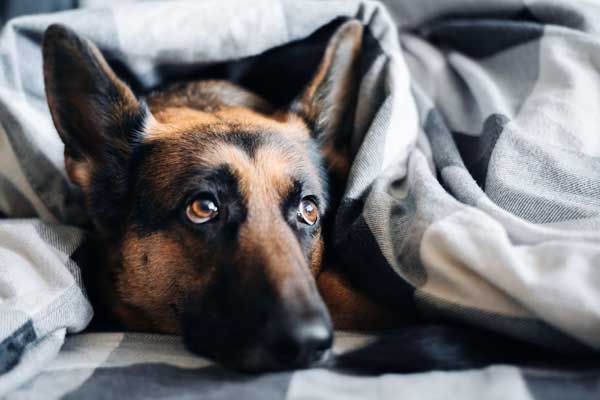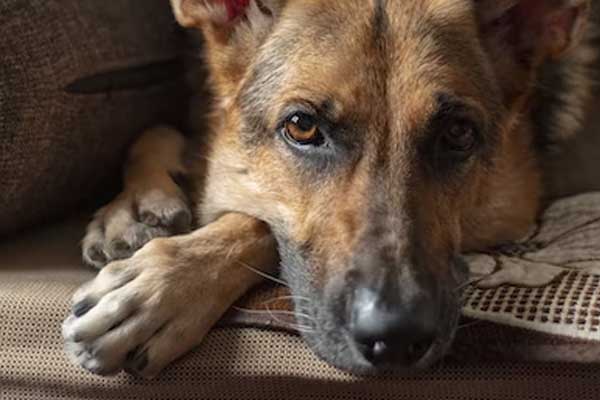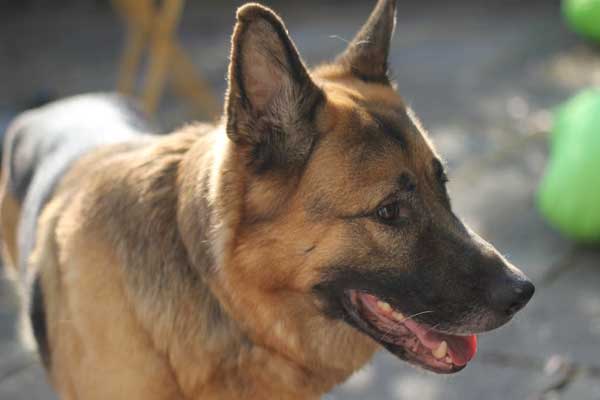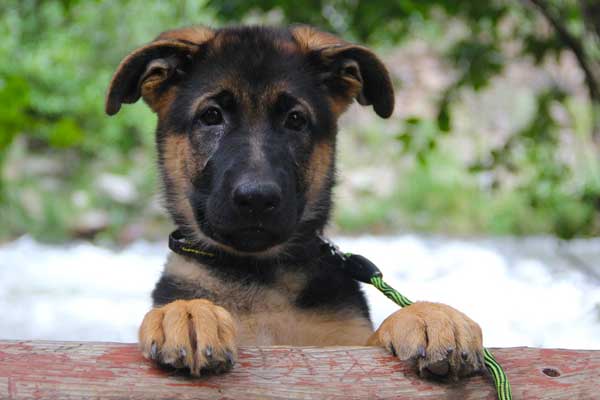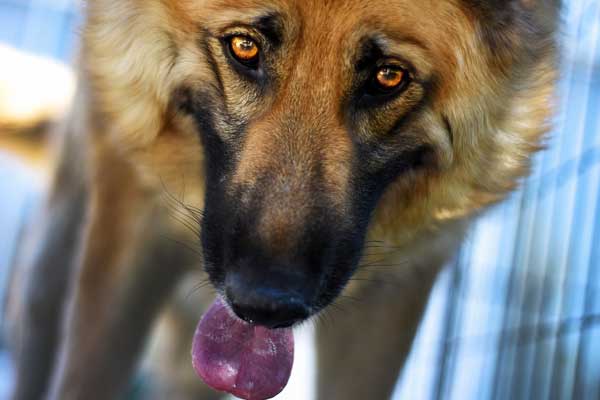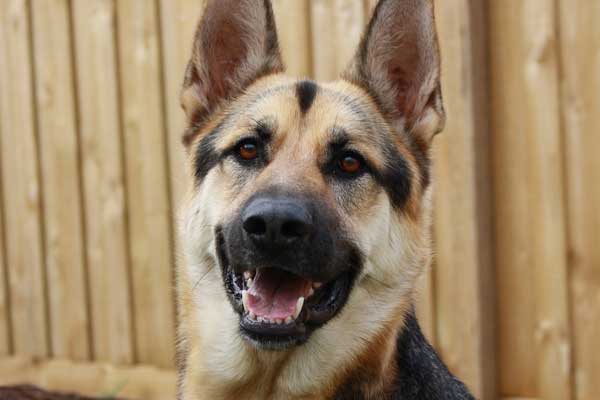Do German Shepherds Like to Sleep with Their Owners? Find Out How They Show Their Affection!
Do you own a German Shepherd and want to know if they like to sleep with their owners? If so, you’re in the right place.
This article will provide an overview of German Shepherds and discuss why some may sleep next to their owners.
We’ll also explore why it is not recommended for your dog to sleep in your bed and give tips on getting them used to sleeping in their bed.
Finally, we will look at different factors that affect your dog’s sleeping habits. So let’s begin!
Introducing German Shepherds – a Brief Overview
German Shepherds are popular dog breeds in the world. They are known for their intelligence, loyalty, strength, and athleticism.
They have been bred for many different tasks, including herding and guarding livestock, search and rescue operations, police work, and even as loyal family pets.
German Shepherds come in various colors ranging from tan to black, with some having white markings on their faces or chest.
Despite being large dogs, they require minimal grooming, which makes them ideal for those who don’t have time to spend hours caring for them daily.
Does German Shepherds Like to Sleep with Their Owners
For the most part, German Shepherds enjoy sleeping with their human family. This breed has been selectively bred over centuries to be incredibly devoted companions, so it’s only natural that they want to spend as much time as possible cuddled up next to their beloved humans.
Considering German Shepherds were initially bred to protect and keep sheep flocks together, their instinctive desire to defend and shield their human family during the night is utterly understandable.
5 Reasons Why My German Shepherd Sleep Next to Me
Affectionate
German Shepherds are loyal and affectionate, so sleeping next to their owners is a way for them to express their feelings. This bond can be seen in how they look into your eyes when you speak or in how they nuzzle up against you when sleepy. The more time they spend with you, the more they’ll feel comfortable enough to get close to their owners and cuddle up at night.
Separation Anxiety
German Shepherds suffer separation anxiety if left alone for prolonged periods. This may cause them to seek out human contact, making them more likely to sleep next to you. Having their owner close by gives them a sense of security and comfort that helps relieve anxiety.
Owner Protection
German Shepherds are naturally protective over their owners, especially if they feel threatened in any way. If the Shepherd senses something is amiss, it may sleep near you to keep an eye out and ensure you’re safe.
Keeping Warm
German Shepherds have thick coats that are made for colder climates, so sleeping next to their owners helps them stay warm on cold nights. Plus, if your Shepherd likes to curl up in bed with you, it’s even better since they’ll get to cuddle up with their favorite human!
Bond with their Owner
German Shepherds love to bond and connect with their owners. It’s a way for them to show affection and loyalty, so sleeping next to you gives your Shepherd a chance to get even closer than usual. After all, when it comes down to it, nothing says “I love you” like a snuggly pup next to you in bed!
5 Reasons Why You Shouldn’t Let Your German Shepherd Sleep in Your Bed
Disturb Your Sleep
German Shepherds are known for their alertness and agility, which means they may be more likely to move around during the night, disrupting your sleep cycle and leaving you tired in the morning.
Having your German Shepherd sleep in your bed can disturb your sleep or other household members. Additionally, since German Shepherds are a large breed, they can take up a lot of space in the bed, leaving you with limited sleeping area.
Trigger Allergies or Asthma
Allergies and asthma can be triggered by pet dander, so having your German Shepherd sleep in your bed or bedroom could cause an allergic reaction or an asthma attack. This is especially concerning for those who suffer from these conditions.
Lead to Injury
If you’re not careful, having your German Shepherd sleep in your bed could also lead to injury. Since they are a large breed, their size and weight can be an issue when jumping up on the bed or rolling over onto you in their sleep. Additionally, if your German Shepherd starts to play in the middle of the night, it could cause injury to you or your pet.
Make You Sick
It would help if you also considered that having your German Shepherd sleep in your bed may make you sick. Pet saliva and dander can contain bacteria and other contaminants which can be transferred to humans, leading to illness.
Carry Parasites
Lastly, your German Shepherd could carry parasites into the bed, which can cause skin infections and other illnesses. Therefore, ensuring that your pet is regularly treated with flea and tick preventatives is essential to minimize the risks associated with parasites.
5 Tips for Getting Your German Shepherd To Sleep in Their Bed
Getting your German Shepherd to sleep in their bed is essential to establishing good sleeping habits. Not only will it help keep you and your pet comfortable, but it will also create a routine that can be beneficial for both of you. Here are five tips to help make this transition easier.
Invest in a Comfy Bed for Your Dog
Giving your pup a cozy spot to call home is essential when teaching them where they should sleep at night. Make sure the bed is plush and inviting, so they feel secure and safe while snuggling up on cold nights.
Put Their Favorite Items in Their Bed
Place items like toys or blankets with familiar scents into the bed, as these may provide comfort and security for your pup during nighttime. This could encourage them to stay put until morning arrives!
Train in a Room That’s Not Your Bedroom
When training your dog on where they should sleep, try doing so away from any bedrooms or other areas that may cause confusion about which room belongs to whom – because if there’s one thing dogs love, it’s consistency!
Establish Basic Commands
Use simple commands like ‘stay,’ ‘lie down,’ and ‘go to bed’ to help teach your pup where they should sleep. Start slowly, rewarding them for staying in their bed when asked. As they become more comfortable with the process, you may introduce a command like ‘goodnight.’
Positive Rewards and Reinforcement
Similar to how you would train a dog in any other area, rewards and positive reinforcement are vital for getting your German Shepherd to sleep in its bed. Make sure to give lots of praise when they stay put and resist the urge to call them out of bed.
Factors Affecting Your German Shepherd’s Sleep
It’s important to understand that sleep is just as essential for these active dogs.
But what factors affect how much and how well your German Shepherd sleeps? Below, we discuss eight common aspects to understand your pup’s sleeping habits better.
Exercise
Exercise is vital to keeping your German Shepherd healthy and helping them get quality rest at night. Regular physical activity allows them to expend some excess energy, so they don’t have trouble settling down when it’s time to go to bed.
Make sure you give them plenty of playtime during the day but also ensure not to do too much or tire them out before bedtime as this could cause difficulty sleeping through the night.
Health Issues
Health issues such as pain or discomfort due to arthritis may interfere with your dog’s ability to sleep soundly throughout the night.
If your German Shepherd has any health problems, talk with your veterinarian about ways you can help manage their symptoms so they can enjoy peaceful nights of restful sleep.
Changes in Routine and Surroundings
Changes such as moving to a new home or transitioning to a new owner can affect your German Shepherd’s sleeping habits. These significant life changes can be disorienting, so try to make the transition process as smooth as possible by slowly introducing them to their new environment.
Temperature
Just like us humans, dogs also sleep better in a comfortable temperature. If it’s too hot or too cold, they may have trouble finding the right balance and sleeping through the night.
Ensure your pup’s bed is in a spot away from direct sunlight or drafts to ensure they stay at an optimal temperature for restful sleep.
REM
Like humans, dogs go through a REM (rapid eye movement) cycle while they sleep. This is when their brain and body are in their most vital state. During this time, your German Shepherd may appear to be dreaming, as evidenced by twitching or barking in their sleep.
Boredom and Depression
Dogs can suffer from boredom and depression, just like humans. If your pup is feeling down, it could affect their resting patterns. Make sure to give them lots of attention and provide plenty of stimulating activities like playing fetch or going for a walk to keep them upbeat and energetic during the day.
Dog Diet
Believe it or not, your German Shepherd’s diet can affect its sleeping patterns. Foods high in fat and sugar may make them feel sluggish during the day and overly energized at night. Ensure them a balanced meal plan with lean proteins and complex carbohydrates for sustained daily energy.
Sleep Disorders in Dogs
Just like humans, dogs can suffer from disorders such as insomnia or sleepwalking. If you suspect your pup is having trouble sleeping through the night, it’s best to consult your veterinarian to initiate further testing and treatment.

